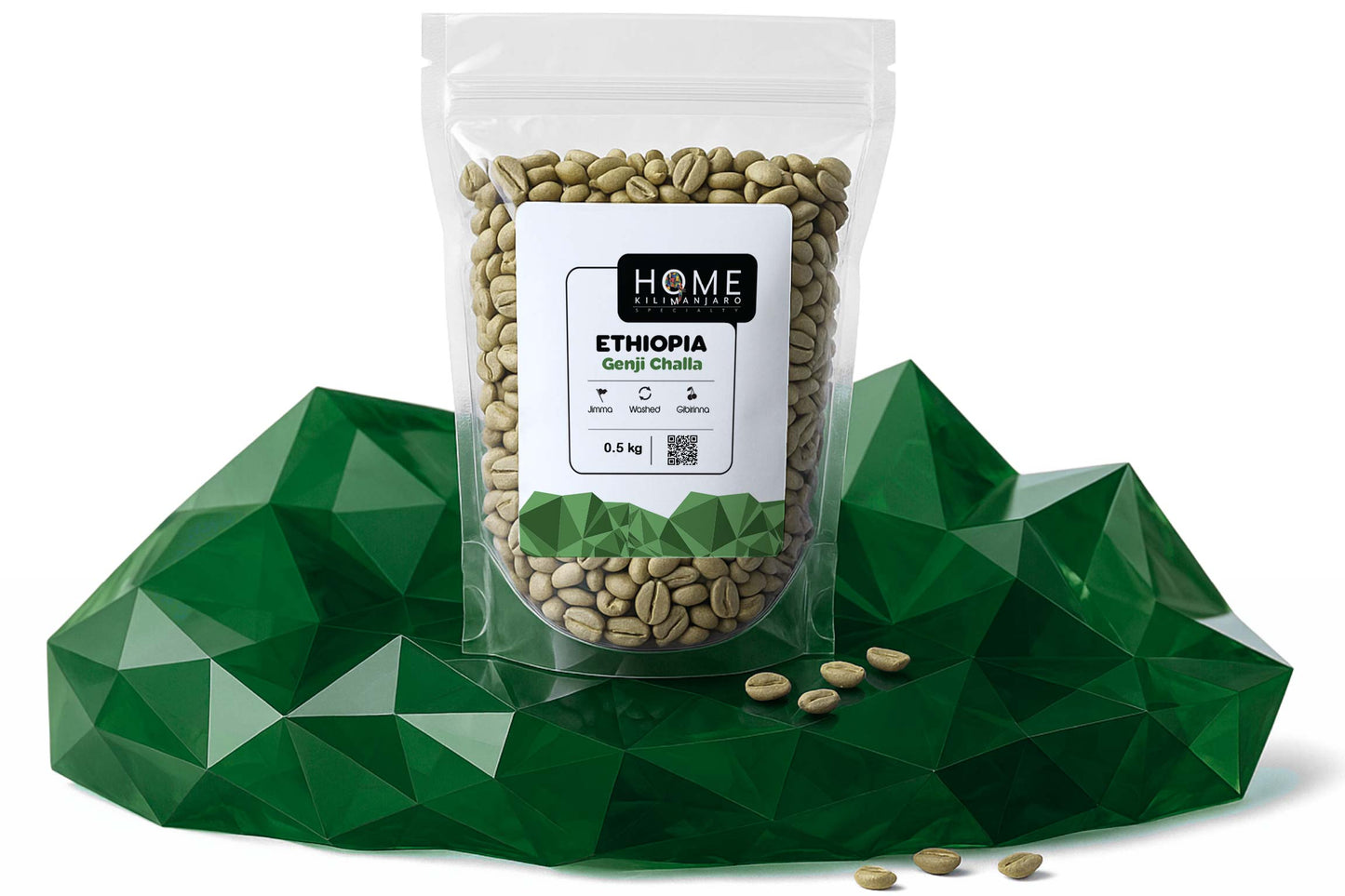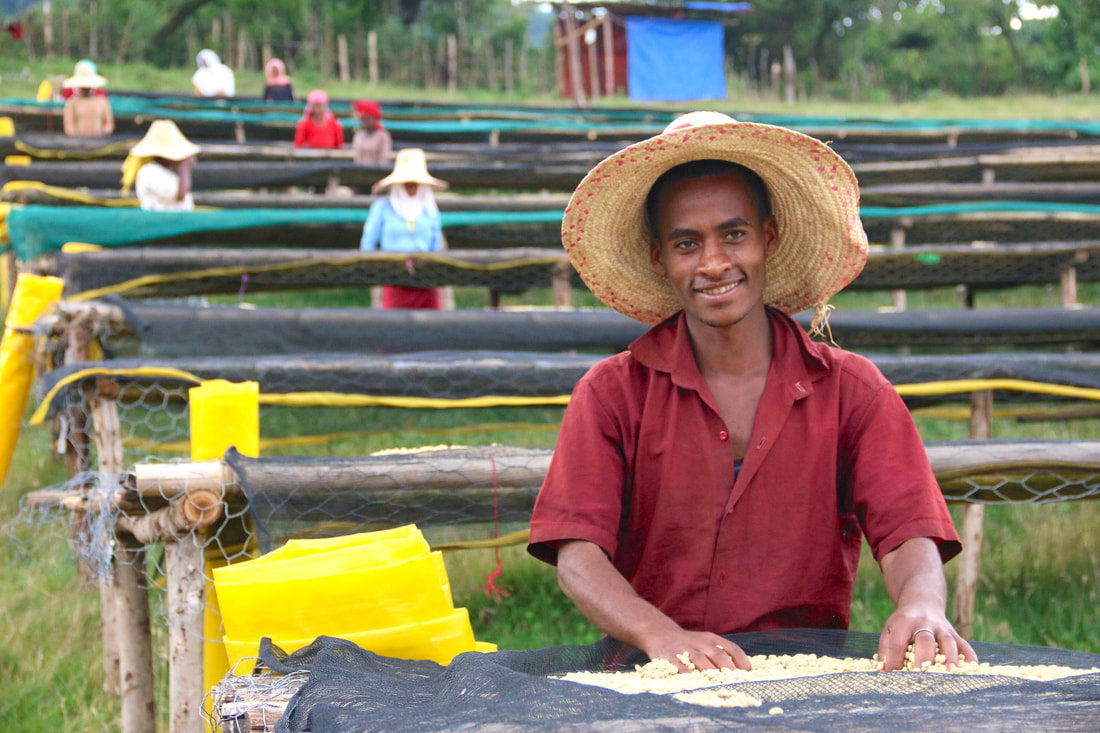

TRACEABILITY
We are delighted to bring you another stunning coffee from Ethiopia, this time called Genji Challa. Genji Challa is a wet mill that is part of the Nano Challa cooperative in the town of Gera, Agaro. It is only 3 km from the Nano Challa cooperative, and between them, they have increased the number of farmers to over 600 members this year. The doubling of the wet mills allows the cooperative to better serve members by increasing its capacity and outreach. Access to these stations has allowed farmers to choose between natural and washed processing, expanding their opportunities in the global specialty coffee market.
The cherries are sourced from the surrounding kebeles (neighbourhoods) and the lots are named after the kebeles in which the coffee is grown. The cherries delivered to the station are a combination of Gibirinna 74110 and Serto 74112. Both are from the Metu Bishari selections made in the forest of the same name in the Illubabur area by the Jimma Agricultural Research Centre (JARC) in 1974. They were specifically selected for their resistance to coffee berry disease.
Genji Challa is equipped with a Penagos 5000 Eco pulper and, once the coffee is washed, it is transferred to a drying table where it rests for a single day before being transferred to raised beds to finish drying in the sun over an average of 10 days. Both stations are at an altitude of just under 1,900 meters, and the farm members grow coffee at 2,000 meters above sea level.
The cooperative was formed as part of an initiative to help farmers in a more general way. The programm was administered by a non-governmental organization that not only coordinates agronomists and managers for each of the cooperatives it works with, but also has a business advisor assigned to help the cooperative manage its debt, reinvest in quality improvements in the mill, and verify the distribution of income to all members. They have since "graduated" from this programm and are now part of the Kata Maduga Union that assists the cooperatives in functions such as marketing, exporting and general international representation.
The cherries are sourced from the surrounding kebeles (neighbourhoods) and the lots are named after the kebeles in which the coffee is grown. The cherries delivered to the station are a combination of Gibirinna 74110 and Serto 74112. Both are from the Metu Bishari selections made in the forest of the same name in the Illubabur area by the Jimma Agricultural Research Centre (JARC) in 1974. They were specifically selected for their resistance to coffee berry disease.
Genji Challa is equipped with a Penagos 5000 Eco pulper and, once the coffee is washed, it is transferred to a drying table where it rests for a single day before being transferred to raised beds to finish drying in the sun over an average of 10 days. Both stations are at an altitude of just under 1,900 meters, and the farm members grow coffee at 2,000 meters above sea level.
The cooperative was formed as part of an initiative to help farmers in a more general way. The programm was administered by a non-governmental organization that not only coordinates agronomists and managers for each of the cooperatives it works with, but also has a business advisor assigned to help the cooperative manage its debt, reinvest in quality improvements in the mill, and verify the distribution of income to all members. They have since "graduated" from this programm and are now part of the Kata Maduga Union that assists the cooperatives in functions such as marketing, exporting and general international representation.
- Choosing a selection results in a full page refresh.
- Opens in a new window.


